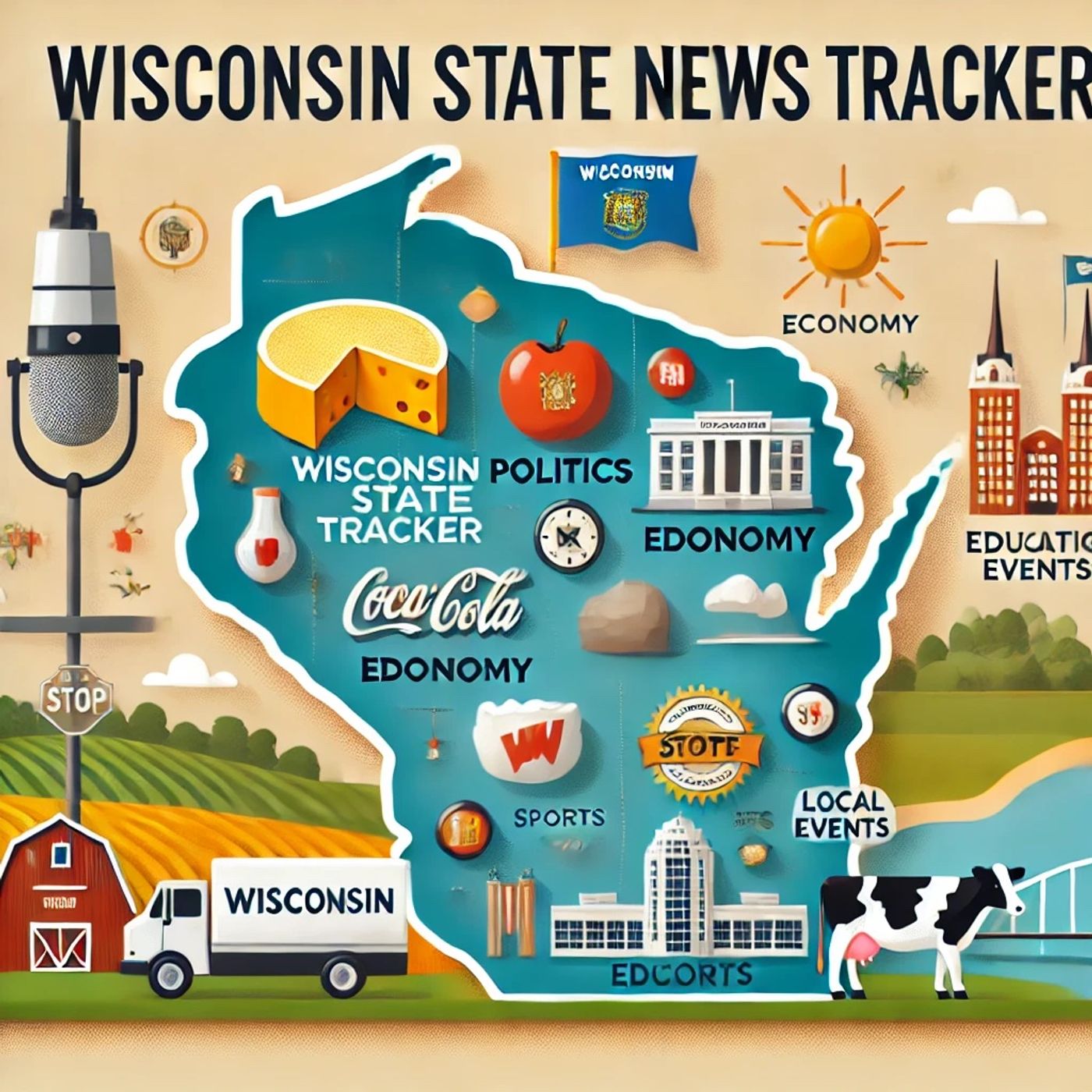Dec 10 2024 2 mins
Wisconsin has seen a mix of significant developments across various sectors in recent months. The state's 2023-24 legislative session concluded with the Senate's final floor votes on March 12, 2024, marking the end of a session that introduced over 2,200 bills, with more than 120 signed into law and 7 vetoed by Governor Evers[1].
In the realm of government and politics, the Republican-led legislature passed joint resolutions that could amend the Wisconsin Constitution, including two binding referendum questions on the April 2nd statewide ballot aimed at making it more difficult for local governments to administer elections[1]. Additionally, the University of Wisconsin system agreed to "reimagine" diversity, equity, and inclusion efforts in exchange for releasing funds for staff pay raises and infrastructure projects[1].
On the economic front, the Wisconsin Department of Revenue forecasted a 0.8% employment growth in 2024, with the state's unemployment rate standing at 3% in Q2 2024, significantly lower than the national average[2]. The forecast also anticipates nominal personal income to grow 4.3% in 2024, with real personal income expected to increase by 1.7%[2].
Community news highlights include the alleviation of drought conditions in Wisconsin, thanks to a wet spring that brought 11.74 inches of precipitation, ranking 4th among the state's highest totals from March to May[3]. This led to a rapid recovery from moderate to severe drought conditions, with crops statewide ahead of their five-year average planting dates by up to one week[3].
Environmental and weather updates note that severe weather was uncommon in March and April but increased in May, with an EF-0 tornado and a short-lived EF-1 tornado occurring in Walworth County[3]. The state also experienced significant wind and hail reports in central and north-central Wisconsin[3].
Looking Ahead:
- The upcoming 2025 deer hunting season will see significant changes in how Wisconsin manages its deer population.
- The state will continue to monitor and address environmental developments, including the long-term increase in seasonal precipitation.
- The impact of the recently passed legislation and constitutional amendments will be closely watched as they take effect.
- Economic indicators will be closely monitored to ensure that the forecasted growth materializes and benefits the state's residents.
In the realm of government and politics, the Republican-led legislature passed joint resolutions that could amend the Wisconsin Constitution, including two binding referendum questions on the April 2nd statewide ballot aimed at making it more difficult for local governments to administer elections[1]. Additionally, the University of Wisconsin system agreed to "reimagine" diversity, equity, and inclusion efforts in exchange for releasing funds for staff pay raises and infrastructure projects[1].
On the economic front, the Wisconsin Department of Revenue forecasted a 0.8% employment growth in 2024, with the state's unemployment rate standing at 3% in Q2 2024, significantly lower than the national average[2]. The forecast also anticipates nominal personal income to grow 4.3% in 2024, with real personal income expected to increase by 1.7%[2].
Community news highlights include the alleviation of drought conditions in Wisconsin, thanks to a wet spring that brought 11.74 inches of precipitation, ranking 4th among the state's highest totals from March to May[3]. This led to a rapid recovery from moderate to severe drought conditions, with crops statewide ahead of their five-year average planting dates by up to one week[3].
Environmental and weather updates note that severe weather was uncommon in March and April but increased in May, with an EF-0 tornado and a short-lived EF-1 tornado occurring in Walworth County[3]. The state also experienced significant wind and hail reports in central and north-central Wisconsin[3].
Looking Ahead:
- The upcoming 2025 deer hunting season will see significant changes in how Wisconsin manages its deer population.
- The state will continue to monitor and address environmental developments, including the long-term increase in seasonal precipitation.
- The impact of the recently passed legislation and constitutional amendments will be closely watched as they take effect.
- Economic indicators will be closely monitored to ensure that the forecasted growth materializes and benefits the state's residents.
